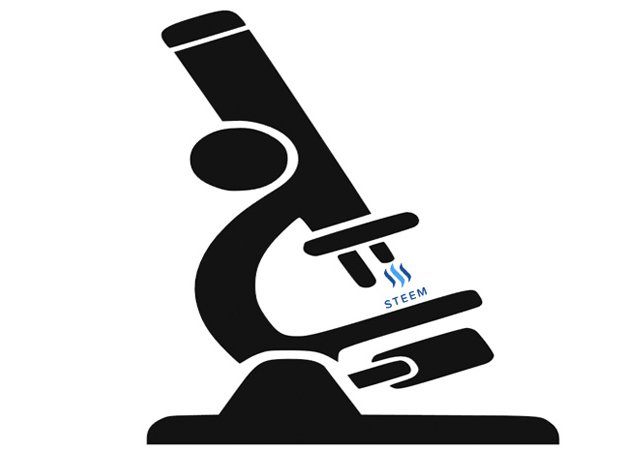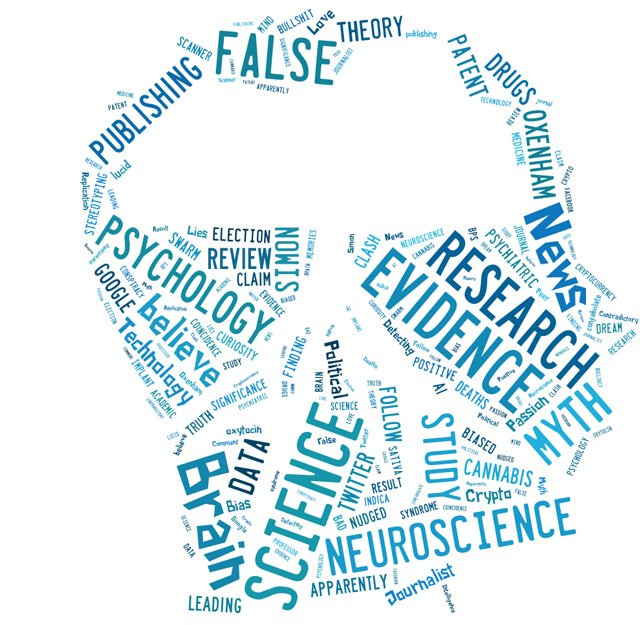
Hello Steemit, thank you for welcoming me into your blockchain tribe! I’m fairly new here, but I’ve been observing this blockchain for some time and having seen its potential, I’ve decided to move my blog here.
I believe that while the Steemit platform has its problems, the blockchain technology underlying it could hold a lot of potential for fixing serious issues within the scientific world. Over my first few posts I’m going to explain how and why, but, first things first.
Who am I?
I'm Simon Oxenham AKA Neurobonkers AKA Brain Scanner. You may know me from my blog post “Meet The Robin Hood of Science” that went viral in 2016.
I’m a science blogger turned freelance science journalist with a passion for correcting bad science and the misinformation that is so prevalent in the press. I started blogging nearly ten years ago to debunk false claims about neuroscience and psychology. Since then, my work has evolved, covering science more broadly at publishers including Nature, New Scientist and the BBC but little has been as rewarding as my good old-fashioned blog which is one reason why I’m deciding to start blogging again here on Steemit.
Here are a few of my favourite topics according to my blog:

My road to science blogging began after realising that a big reason why so much science journalism is so poor is that journalists in most of today’s newsrooms simply aren’t given the time to cover science properly. Science journalism has broadly become the blind regurgitation of press releases and little more. Furthermore, a journalism model that depends on page views doesn’t create incentives to report the news accurately, it does the opposite.
Now I know this introduction post is where I’m meant to persuade you why I’m worth your follow on here, but I’m sick of blowing my own trumpet already. Instead, I’ll simply paste some nice things people have said about my blogging.
The New York Times called my blog part of a “backlash against what is sometimes called brain porn”. Guardian columnist and journalism professor Paul Bradshaw described my debunking of a bad news article as “the best piece of bad journalism debunking I’ve ever seen”. Dr. Ben Goldacre (my not so secret source of inspiration, author of Bad Science and Bad Pharma) said of the same post: “This awesome takedown should win some kind of prize… Bravo”. The authors of Pearson’s textbook of psychology recommended my blog for its “excoriating reviews of bad science”. Neuroscientist and blogger Neuroskeptic, another big source of inspiration for me, called my blog “consistently excellent”, they later interviewed me about it here. The Brain Science and Early Intervention Research Project at the University of Southampton recommended my work for its “critical analysis of misinformation". My blog posts have been referenced and used as sources by publishers including Forbes, The Wall Street Journal, New York, The Huffington Post, The Conversation, Upstart Business Journal, The LA Times, and Scientific American.
In the next few posts I’m going to explain how you too could have a similar impact using this platform as your tool. I chose the quotes above because they are from people who I respect enormously, if you’ve not discovered their work already you should check them out.
Tomorrow, I’ll be posting the next in this four-part series, explaining how Steem works, and why I think it has potential for fixing deep-seated problems in how science is communicated. I’ll release each new part daily at 1PM BST (8AM EDT) over the next four days.
PART 1: I Have a Dream for Science on Steem
PART 2: What Is Steem and Why Do I Think It Could Be Revolutionary?
PART 3: Why Science Blogging Needs Saving
PART 4: How Blockchains Could Fix Science
I hope you give me a follow on here even if you’re not someone who normally follows science. If that’s the case I’m willing to bet I can change that, give this post a read for starters. If you share my passion for fixing scientific communication and debunking misinformation then say hello in the comments and post links to your favourite science blogs already on here. I’ll kick us off with the wonderful folks over at @SteemStem!
Don't let me down Steemit, I have very high hopes for you.
You can also find me on Twitter and Facebook and subscribe to weekly email updates on my posts.
Postscript: I want to take this opportunity to thank Daniel Himmelstein (@dhimmel), the scientist who introduced me to Steem. Daniel shares my goal of freeing scientific data and is at the forefront of this movement. Daniel has been so kind as to mention the impact of my blogging in his recent research on the subject.
Full Disclosure: I’ve made what seems to be ballooning into a substantial investment in Steem Power so I can help encourage and reward the best science content on here and earn curation rewards for myself in the process. I’ll be using some of that investment to promote this series however that’s something I won’t be doing in future. I’m going to promote each post a few hours after it’s released to give you hard working science curators out there a good shot at the curation rewards. If that was gobbledegook to you, then check back here tomorrow when I’ll explain how this all works.
Credits: Microscope via Wikimedia Commons. Word cloud created using Tagxedo.
